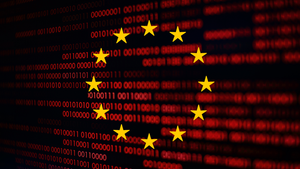CISAC is the latest music industry organisation to urge European lawmakers to ensure that clear transparency obligations remain in the final version of the European Union's AI Act. The call came on Friday ahead of crucial talks in Brussels this week.
"We are writing on behalf of more than five million creators of diverse repertoires and from different regions across the world to ask the European Union to ensure proper transparency principles are laid down in the EU AI Act", it said in a statement. CISAC’s membership includes all the song right collecting societies, plus societies representing literary and artistic works.
The EU's AI legislation is not specifically focused on generative AI - the kind of AI of most interest to the music industry - but it does include some regulation of it. In particular, transparency obligations for AI companies, something the music industry has been demanding.
The act is in the very final stage of negotiation, where the European Commission, European Parliament and EU Council try to agree on a final text. Some EU countries are seeking to relax the rules at this final stage following fierce lobbying from the tech sector. The music industry is keen to ensure that that doesn’t happen and that the transparency obligations remain.
CISAC President Björn Ulvaeus, of Abba fame, added on Friday: "Transparency obligations are now the focus of intense discussion of the draft EU regulation. I hope it is understood what is at stake here, and that those countries with the strongest and proudest cultural traditions have the greatest interest in protecting their own creators and culture sectors in the AI-impacted future".
"I hope that those countries will understand", he concluded, "that transparency rules in the AI age will help them protect their own songwriters, artists and other creators and can be adopted without fear of stifling technology or innovation".
Last month a group of organisations representing creators from multiple art forms published a similar statement calling for clear transparency obligations to remain in the EU AI Act.

